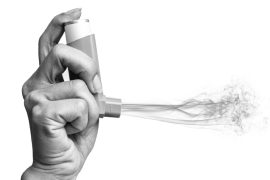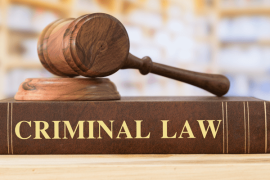COPD affects almost every part of a person’s life; it’s not only a respiratory condition. Every activity becomes into an uphill fight, from routine chores like climbing stairs to more important ones like speaking or eating. As the condition worsens, the airways shrink, causing exhaustion, chronic coughing, and extreme dyspnea. The psychological toll that this fight takes might be just as severe as the physical one. People with COPD typically experience depression, anxiety, and a sense of loneliness because of their ongoing physical restrictions, which may leave them feeling frustrated and powerless. Managing the disease’s unrelenting course may be very taxing, and many people discover that they are no longer able to carry out basic activities that they formerly took for granted. This blog examines the complex effects of COPD on people and how a COPD compensation claim may provide essential assistance via accessible resources and legal systems.
The Way in Which COPD Compensation Claims Offer Economic Relief
A possible financial benefit of filing a compensation claim is one of the biggest advantages. The lifetime nature of COPD necessitates constant medical care and lifestyle modifications, both of which are expensive. People may have to cut down on their working hours or lose their capacity to work, which would result in a loss of revenue in addition to medical costs. The option to make a compensation claim may be a lifeline for those working in a field where COPD is common.
The money received once a claim is approved may be used to pay for therapies, treatments, and equipment that people need to manage their disease, such oxygen tanks or house adaptations. Additionally, by giving a feeling of justice and acknowledgement for the injury endured, the compensation might provide some financial stability during an uncertain period and lessen the emotional strain.
The Chronic Impact of COPD on Day-to-Day Living: Managing Restrictions
Beyond only physical symptoms, COPD has far-reaching long-term effects. Many people discover that their capacity to carry out everyday tasks is significantly reduced as the illness worsens. Even basic activities like getting dressed, cooking, or even going for a stroll may become tiresome and even impossible. People with COPD often have to continually adjust to new limitations on their freedom and movement due to the progressive deterioration of lung function.
Furthermore, the frequency of hospital stays and doctor’s consultations rises as symptoms deteriorate, posing further difficulties. These people often feel more anxious since they know that their health will only become worse over time. Being able to cope with these restrictions requires both mental and physical toughness. It may be emotionally taxing to continuously adapt to a new reality, particularly when it becomes harder to engage in social activities or sustain relationships that were once enjoyable. Some of these issues may be resolved with the help of a compensation claim, which gives people the money they need to modify their homes, make medical care investments, and get help from a specialist.
Legal Experts’ Function in COPD Compensation Claims
The outcome of a compensation claim, like any legal procedure, may be greatly impacted by having the correct legal counsel. Attorneys with a focus in personal injury or industrial illness law have the know-how to handle the intricacies of a case. They may help with obtaining the required job and medical documentation, communicating with medical specialists, and making a strong argument to get the money that people are due.
A legal expert may also provide advice on how to handle the claims procedure, making sure that all due dates are fulfilled and that the claim is pursued as efficiently as possible. They can provide the assistance required to make well-informed judgements about how to continue and assist in elucidating the sometimes perplexing legal jargon. In the end, a legal expert’s knowledge is crucial to guaranteeing that people with COPD may get the money they are entitled to.
Prognosis in the Long Run and the Value of Ongoing Assistance
Individuals with COPD may have a broad range of long-term outcomes, dependent on the severity of the illness. If people follow the proper treatment techniques, they may continue to lead active lifestyles for many years after being diagnosed. It is essential that people with COPD continue to get medical attention and routine evaluations to track the condition’s development.
Long-term social and economic assistance are just as crucial as medical treatment. People may avoid financial hardship while navigating the difficulties of living with COPD by filing a compensation claim. When given the right assistance, people with COPD may concentrate on enhancing their quality of life and better managing their health. The resources and skills required for people to live as completely as possible despite the difficulties of COPD may be obtained via ongoing assistance from lawyers, medical experts, and support organisations.
Conclusion:
In conclusion, having COPD comes with a lot of emotional and physical difficulties. It might be daunting to constantly fight for air and to make the drastic lifestyle adjustments that are necessary. Nonetheless, the possibility of filing a COPD compensation claim gives those afflicted with the illness some optimism. Through comprehension of the legal structure, the crucial elements that impact a successful claim, and the accessible assistance programmes, people may confidently traverse the intricacies of this challenging circumstance.
Making a claim for COPD compensation is about more than simply getting money; it’s about acknowledging the pain people have suffered as a result of carelessness or dangerous exposure. Affected people may use it to recover their rights and seek justice for the effects of COPD on their life. People may start to reconstruct their lives, one step at a time, and find hope despite the difficulties presented by this debilitating disease if they have the proper legal assistance and are aware of the options that are accessible.



